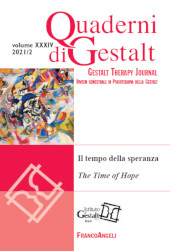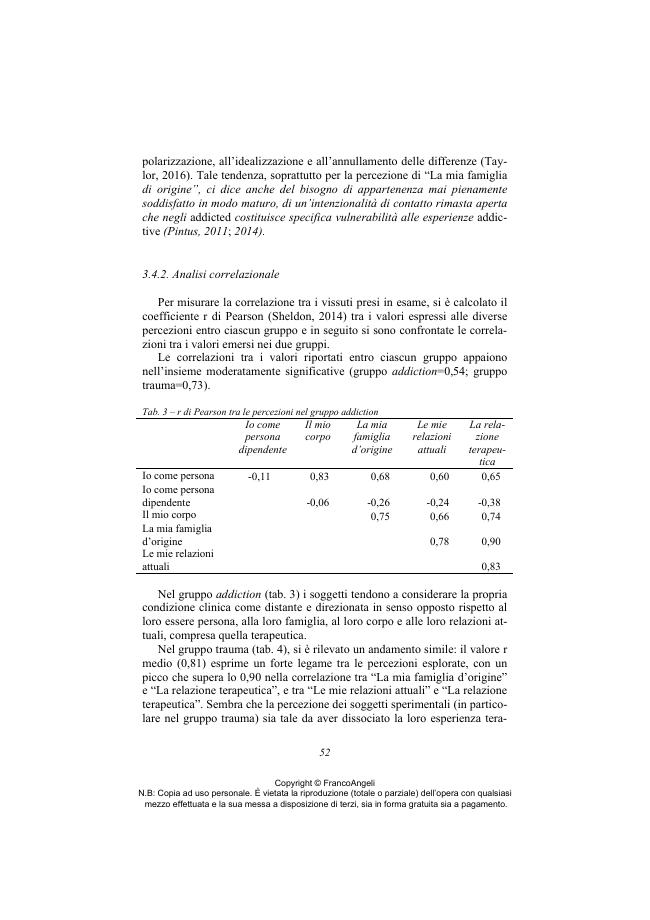Esperienza addictive ed esperienza traumatica : fratture dello sfondo a confronto : un contributo di ricerca
45-58 p.
Alla luce di analoghi studi su addiction ed eventi traumatici, gli autori approfondiscono le correlazioni tra alcune dimensioni emotive e relazionali rilevabili in questi due tipi di esperienze delineando, coerentemente con una visione gestaltica, l'insorgere dell'esperienza addictive come "un'esperienza traumatica persistente". Si è condotta un'indagine sperimentale su un campione di tossicodipendenti e vittime di trauma da maltrattamento o abuso in trattamento. I risultati sostengono la tesi secondo cui addiction e trauma siano figure fisse su uno sfondo irrigidito che limitano la crescita e l'integrazione e che la sofferenza dei soggetti addicted sia altamente correlata a carenze relazionali precoci. Un lavoro terapeutico sullo sfondo può favorire la ridefinizione della funzione personalità e della funzione es e ripristinare l'orientamento spontaneo verso la relazione. [Testo dell'editore].
In the light of similar studies on addiction and traumatic events, the authors investigate the correlations between some emotional and relational dimensions of these experiences, outlining, coherently with a Gestalt vision, the addiction as "a persistent traumatic experience". It is an experimental survey conducted on a sample of patients, drug addicts and victims of trauma from maltreatment or abuse, in treatment. This comparative analysis highlighted the common points between addiction and trauma, taking into consideration the correlated neurobiological and physiological aspects. Specific consideration was given to emotional and physical past, family background, actual relationships and therapeutic relationships, used as observational vertices to understand the similarities between addictive subjects and traumatized subjects.
The results support the thesis that addiction and trauma are fixed figures on a hardened background which do not allow the organism to grow and alter its relationship with its surroundings and that the suffering of addicted subjects is highly correlated with early relational deficiencies. This poor contact skills also reflected on the neurobiological level, since the dissociation between the right and left hemispheres and, therefore, between emotional and cognitive functions, which characterizes both experiences, determines the loss of integrative function such that the self becomes incapable of creating a good synchronization with the field. A therapeutic background work can favor the redefinition of the personalityfunction and the esfunction and restore the spontaneous orientation towards the relationship and neurologically the outcome of this therapeutic action becomes functional reintegration between the two hemispheres.
Therefore the support that the Gestalt therapist gives to the addicted and traumatized patient is therefore aimed at the intentionality of contact never fully satisfied in the organismenvironment field. [Publisher's text].
-
Artículos del mismo número (disponibles individualmente)
-
Información
Código DOI: 10.3280/GEST2021-002004
ISSN: 2035-6994
KEYWORDS
- Abuso, addiction, figurasfondo, trauma, intenzionalità di contatto
- Abuse, addiction, figureground, trauma, contact intentionality



